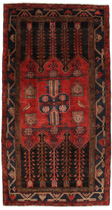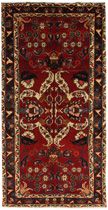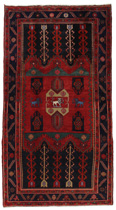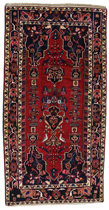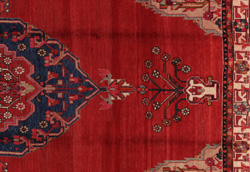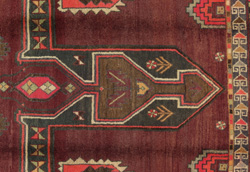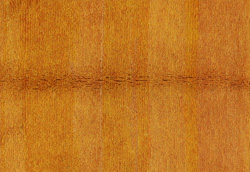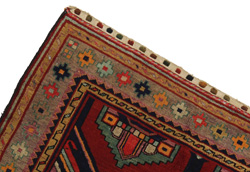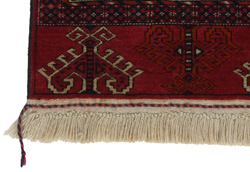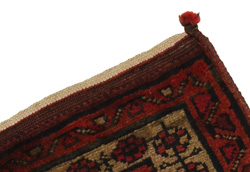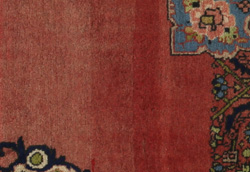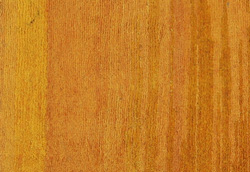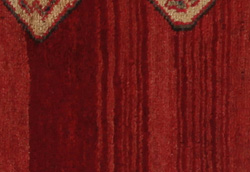Main Category
Origin
|
Size/Shape
|
Bijar - Kurdi Persian Carpet 290x147
The colours of each carpet look different depending on the side from which you look at it. You can see the carpet from different perspectives in the images below:
(click on the images below for greater detail)
- Discount Price: 795 $ -50%
- Retail Price: 1590 $
- Carpet Code: unq1675-3312
- Size: 290x147 cm
- Thickness: Medium (5-10 mm)
- Age: 0-20 (New)
- Preile - Warp: Wool on Cotton
- Knot Density: approximately 140,000 knots per m²
- Carpet colours:
Bijar Carpets : The Bijar carpets have taken their name from the homonymous small Kurdish town Bijar that is located in Western Iran. The Bijar are very high quality carpets and their name implies toughness and durability. They are thick tight-woven carpets with double knots and excellent quality wool. The most famous design is called Herati-mahi (mahi = fish). Another typical design is a central medallion and flowers.
Kurdi Carpets : Kurdistan is a mountainous area south of Azerbaijan. The area has been inhabited since ancient times by Kurdish nomads and seminomads, who live on the western border of Persia as farmers and produce the best wool in the country. The area is avery active centre of carpet weaving. Wonderful carpets are woven there, with geometric designs rhombi, medallions, little ornaments and the well-known designs Herati, Mina-Khani. The background colors of the Kurdi carpets is usually dark blue or deepred.
Nomadic carpets: Carpets woven by nomads. Nomads move continuously and do not stay permanently in one geographic region. They manufacture (weave) handmade carpets on collapsible looms. Due to that fact there may be slight variations in weaving and their carpets are sometimes uneven in shape. Also the weaving is made from memory and it depends on each artisans momentary inspiration. As a result, the designs in some carpets are not even on the entire surface.
All CarpetU2 carpets are subject to cleaning with high quality antibacterial and moth protection products according to Persian law.
Horizontal or vertical shading in the carpet pile: The shading is due to folding the carpet during transportation. When the carpet is laid and stepped-on they will vanish. Examples
Flat woven at one or both ends of the carpet's width: In some carpets the nomads weave at fringes on a narrow Kilim one or both sides of the width, or they weave them artistically into small braids. It is a technique various weavers use for a greater durability or simply to demonstrate their skill. Examples
Abrash: Due to the different amount of grease in the wool and the added salt during the process of dyeing, the wool has got a varying colour absorbance. This is not very visible before weaving. During the weaving though, lines of the same colour are formed in the carpet. This is called Abrash (which in Farsi means little cloud) and it shows that the wool was not manufactured using chemical means and marks the naturalness and authenticity of the carpets. Examples
Similar Carpets You Might Also Find Interesting
You have to choose at least two (2) carpets!
You can select up to six (6) carpets to compare!

 Click here for larger image
Click here for larger image






